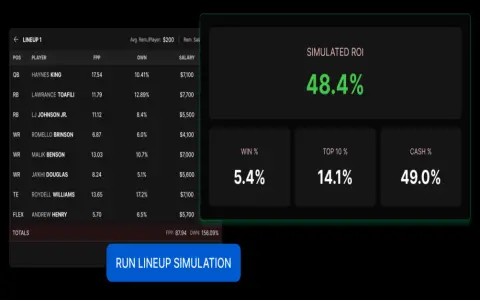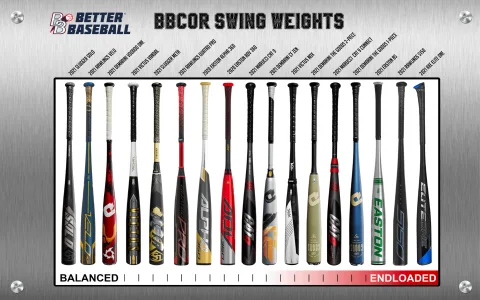Recently, I’ve been seeing the term “MLB 13-color lottery pool” all over the internet, and people in my WeChat Moments have been talking about it, saying that so-and-so made money again. I thought to myself, “It’s just picking a baseball team, how hard can it be?” Last month, I spent $20 to sign up for a contest, confidently picked my favorite team, and thought, “They’ve won so many games, they’ll definitely win this time.”
The result? By Wednesday, my money was gone. Not a single cent left.
Looking back now, it was a classic beginner’s mistake. I didn’t do any research, didn’t look at the data, and just bet based on “I like this team.” It’s like ordering food without looking at the prices and just picking something with a nice-sounding name—only to find out it’s not what you wanted.
After losing money, I started to study seriously
After that loss, I felt uncomfortable, so I started looking online to see how other people played. I browsed some forums and saw many people sharing their experiences. Someone said, “The air is thin in Denver, so pitchers get tired easily.” Someone else said, “Teams on the West Coast play early in the morning, so they’re definitely not in good shape. Don’t pick them.”
At first, these comments sounded like guesswork, but I wrote them down on a piece of paper and stuck it next to my computer. Gradually, I realized that these weren’t just random comments, but that they made sense.

I didn’t believe everything right away, but I decided to give it a try.
I started using a few simple rules to pick teams
Before the next pool game, I didn’t rely on my feelings anymore.I made a short checklist and asked myself these questions before selecting a team each time:
1. How has the starting pitcher been performing recently?
I no longer just looked at the team name, but checked who was pitching. If a pitcher had given up a lot of runs in their last three games (e.g., more than 5 runs per game), then the team was less likely to win. In that case, I avoided them.
2. Does the game location favor the batters?
I’ve noticed that some ballparks are particularly conducive to home runs. For example, Coors Field in Colorado has a high altitude and thin air, causing the ball to travel much farther. In such locations, batters have an easier time scoring runs. So if a strong-hitting team is playing there, I’m more likely to pick them.
3. Has the team just finished a long trip?
If a West Coast team was in California the day before and has to fly to New York early the next morning for a 10 a.m. game, they’re likely still adjusting to the time difference and feeling tired. In such cases, their performance is usually poor. I’ve learned to automatically skip these games.
4. Will the weather affect the game?
On windy days, the ball flies farther, leading to more home runs. If it rains, the game may be delayed or canceled. So I always check the weather forecast for the day, especially the wind speed and temperature. If the wind is blowing from the outfield toward the infield, I know it’s going to be a “home run day.”
I write these down in a small notebook and review it before selecting teams each time. I no longer act impulsively, but rather approach it step by step, like doing homework.
I began recording the results and gradually noticed a pattern
I also purchased an inexpensive notebook and began recording my selections and results each time. For example:
- May 3: Cubs vs. Mets → I chose the Cubs because it was windy that day and the Mets’ relief pitcher had been in poor form recently. The Cubs won, and I scored points in that round.
- May 4: Rockies vs. Marlins → I didn’t choose the Rockies, even though they were playing at home, because their starting pitcher had a high ERA in his last three games.I chose the Marlins, and they won.
Every time I lost, I crossed it out in red to remind myself where I went wrong. After two weeks, I discovered a clear pattern: if a team’s pitcher is in poor form and the venue favors the batters, they are likely to lose.
It sounds simple, but I never thought of it before.
Now I don’t go for complexity, I just focus on the essentials
What changed my mind the most was that I realized I had been spending a lot of time researching things that were completely useless. For example, how many years a player had played in the minor leagues, how old he was, whether he had been injured but it hadn’t been announced… This information seemed very professional, but in reality it had little impact on the game that day.
Later, I decided: I only need to focus on three things—the pitcher’s form, the game location, and the team’s schedule.
Everything else, I skip. I no longer stay up late looking at data, and I no longer agonize over a game that may only last three innings.
My current method is very simple:
- Every Monday morning, I look at the starting pitchers for all the games.
- I mark the games where the weather is bad or the field favors the batters.
- I skip all games that start before 11 a.m. (especially those across time zones).
- Choose a maximum of four games to bet on each round and don’t be greedy.
Most importantly, I no longer believe in “I think this team will win.” Because “feelings” are too deceiving. Sometimes I like a team even though their statistics are terrible, but I still want to pick them, and they always lose.
I’m not rich now, but at least I’m no longer guessing blindly.
Last week was the third week in a row that I made money. I didn’t make much each time, maybe just a dozen or twenty dollars, but the key is: I’m winning with a method, not luck.
I didn’t quit my job to become a professional gambler, nor do I plan to make a living from this. But I finally understand: playing pool games isn’t about who knows more about baseball, it’s about who is better at managing information.
Before, I was like a fan, betting based on passion; now I’m like an ordinary office worker making plans, calmly analyzing, choosing what to pick and skipping what to skip.
Every Sunday morning, I still brew a cup of coffee and open my computer to check the data. But the difference is, I no longer panic or regret my decisions. I know which games are worth spending time on and which ones I can ignore.
This feeling is actually more satisfying than winning money.



